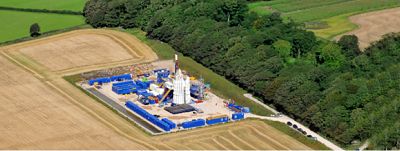Submitted by L. Millard on Sat, 06/02/2016 - 09:59
Fracking for shale gas extraction has been the subject of intense debate. Many myths, mistruths and misunderstandings abound – frequently fuelled by the media – but there are also understandable concerns.

Professor Lord Mair, Head of CSIC, will examine these concerns and shed light on the subjects of fracking for shale gas, as well as discussing the use of fracking for compensation grouting to protect buildings from tunnelling subsidence, when he presents the G.I. Taylor Lecture for the Cambridge Philosophical Society on Monday 8 February.
In 2012 Professor Mair chaired a joint committee set up by the Royal Society and Royal Academy of Engineering to analyse the environmental, health and safety risks associated with shale gas exploration in Britain. The committee identified a set of recommendations for the Government to make shale gas exploration as safe as possible. The report concluded that the risks could be managed effectively as long as operational best practices were implemented and enforced through regulation. The Government accepted all the report’s recommendations.
Most of the concerns about fracking in the UK have arisen from experiences in the USA where more than 30,000 shale gas wells have been drilled in recent years, resulting in their ‘shale gas revolution’. Lord Mair’s lecture will address issues considered in the report and key questions including:
• what are the risks of earthquakes?
• what are the environmental risks, particularly in relation to possible groundwater contamination?
The technique of fracking – better known as hydraulic fracturing – is also used for controlling settlements in soils induced by tunnelling and excavations, particularly in relation to limiting damage to potentially affected buildings. The lecture will describe the technique of compensation grouting, which involves controlled hydraulic fracturing of the ground; this is achieved by injection of liquid grout from tubes installed between the tunnel and building foundations to compensate for ground loss and stress relief caused by the tunnel excavation.
Lord Mair said: “The technique was used very successfully to protect Big Ben during construction of the Jubilee Line Extension and is now widely adopted around the world. More recently it has been used extensively to protect many buildings during the construction of Crossrail in London.”
Professor Lord Mair’s Lecture titled Fracking – Shale Gas Extraction and Protecting Buildings from Tunnelling Subsidence is at 6pm on Monday 8 February at the Bristol-Myers Squibb Lecture Theatre, Department of Chemistry. Admission is free and the lecture is open to all who are interested.
